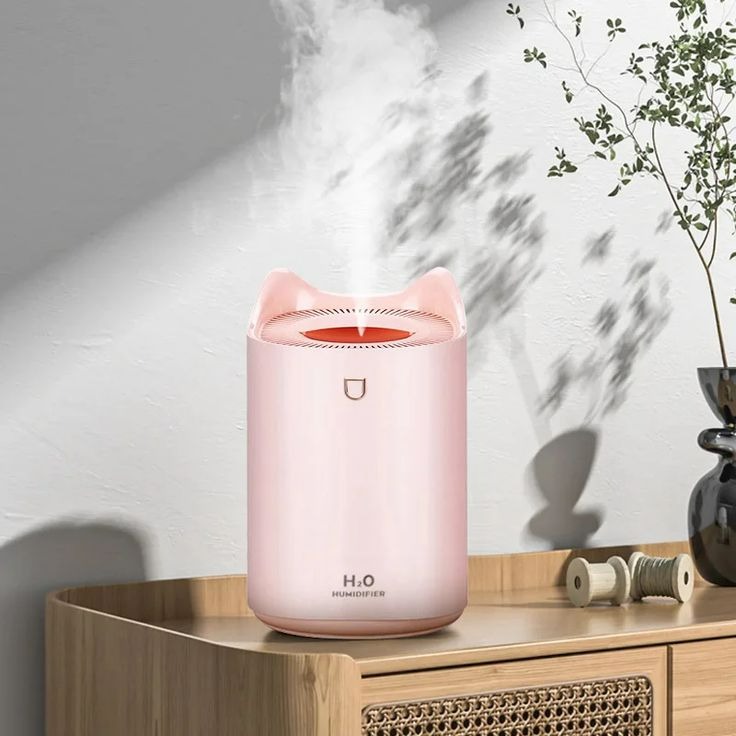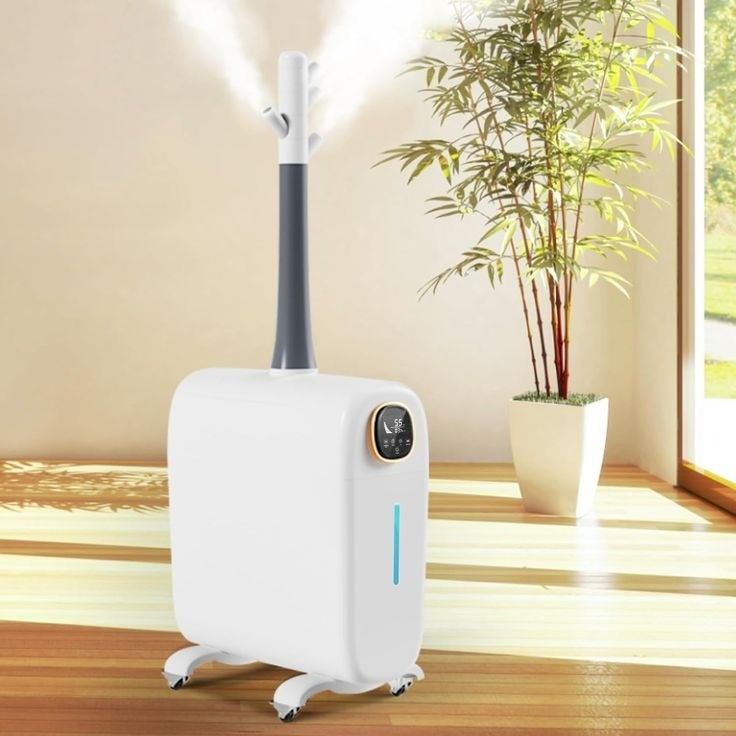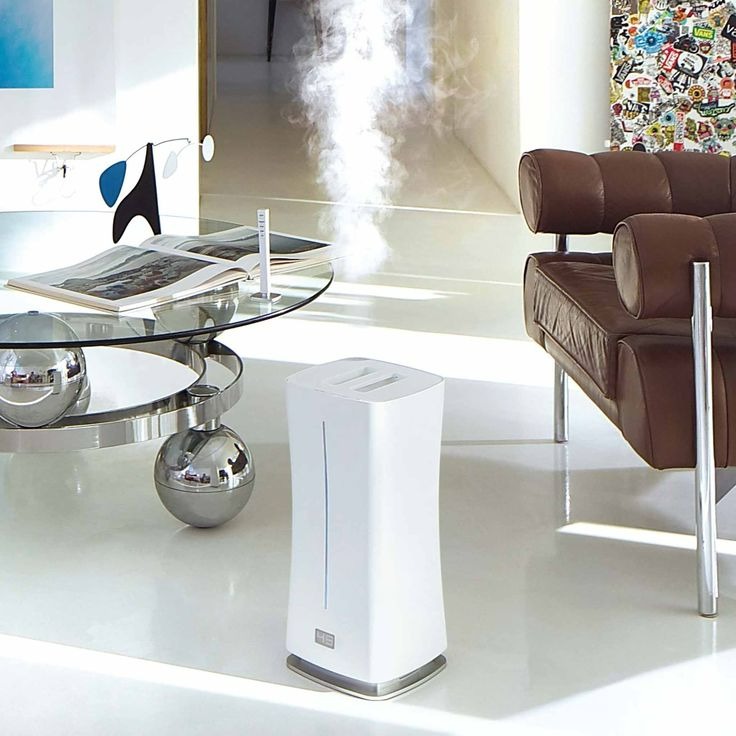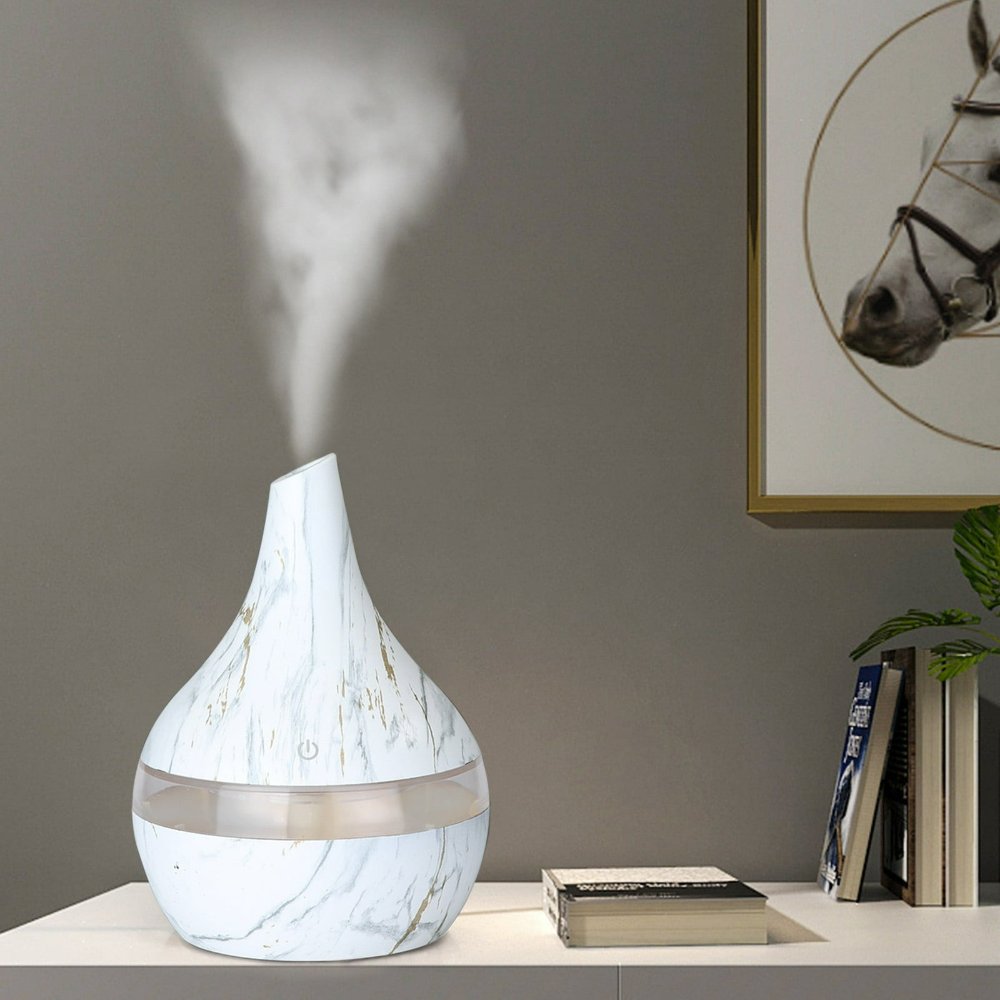The Science Behind Humidity and Cough Relief
When it comes to easing cough symptoms, humidity plays a crucial role. Dry air can irritate the throat and airways, making a cough feel worse. This is where humidifiers come into play. They add moisture to the air, which can soothe the mucous membranes of the throat. The moisture helps to thin the mucus, making it easier to expel and thus, providing relief from coughing. It’s important to note that while humidifiers can be beneficial, they should be used correctly to ensure the best results.
In simple terms, humidifiers work by balancing the humidity in your environment, which can help in reducing cough symptoms caused by dry air. Research supports the idea that maintaining an optimal level of humidity indoors can significantly impact how our bodies cope with coughs. But remember, the key is optimal levels—too much humidity can lead to its own set of problems, such as the growth of allergens that can exacerbate coughs. Balancing humidity levels is a delicate but manageable task with the right humidifier and proper use.

Types of Humidifiers for Cough Suppression
Choosing the right type of humidifier is important for effectively managing cough symptoms. There are several varieties, each with their own benefits.
Cool Mist vs. Warm Mist Humidifiers
Cool mist humidifiers disperse a room-temperature vapor. They are generally safer around children since there’s no risk of burns. They can also be quieter and use less electricity.
Warm mist humidifiers, sometimes called steam vaporizers, heat water to create steam. This warm vapor can feel soothing. However, they do require more energy, and there’s the risk of burns if one gets too close.
Both types keep the air moist, which does help with cough caused by dryness. The choice often comes down to personal preference and safety considerations.
Ultrasonic vs. Evaporative Humidifiers
Ultrasonic humidifiers use high-frequency vibrations to produce mist. They are very quiet, making them ideal for use in bedrooms. They can work with cool or warm water.
Evaporative humidifiers draw air through a wet wick filter. As the air passes through the filter, it evaporates moisture into the room. They can be more effective in large spaces but may be noisier.
Each type of humidifier has its own pros and cons. When making your choice, consider factors such as noise, energy use, and risk of burns. Keeping these factors in mind will help determine the best humidifier to alleviate your cough symptoms.
Safe Usage of Humidifiers to Mitigate Coughing
Humidifiers can be a great aid in managing coughs, but they must be used safely. It’s essential to keep the humidity level in your surroundings within an ideal range. Too much humidity can promote the growth of mold and dust mites, while too little won’t effectively alleviate dry air-related cough symptoms. Using a hygrometer can help track humidity levels. Always follow the manufacturer’s instructions for safe operation and place the humidifier on a flat, stable surface.
Ideal Humidity Levels for Health
The ideal indoor humidity level is generally considered to be between 30-50%. This range helps relieve cough by moistening the air without fostering the growth of allergens. If your throat and nasal passages are dried out from the air being too dry, increasing to this humidity sweet spot might provide cough relief.
Maintenance and Cleaning Practices
Proper maintenance and cleaning of your humidifier are non-negotiable for healthy air quality. Dirty humidifiers can breed bacteria and fungi, which can then be released into the air and potentially worsen cough or cause infections. It’s recommended to change the water in your humidifier daily. Clean the tank and other parts regularly according to the manufacturer’s guidelines, using water and vinegar or a disinfectant specifically recommended for humidifiers. Ensure filters are replaced as necessary to prevent the buildup of minerals and other contaminants that can be harmful to health.

Advantages of Using a Humidifier During Illness
Using a humidifier when you’re sick can offer several benefits. Easing respiratory symptoms is a well-known advantage. When you’re battling a cold or flu, a humidifier adds moisture to the air. This can soothe your irritated airways and reduce the harshness of your cough. Moist air also helps loosen the mucus in your chest and nose, making it easier to clear. So, you could say that a humidifier acts as a natural decongestant.
Beyond making breathing easier, maintaining proper indoor humidity can also promote quicker healing. Dry air can delay the recovery of your throat’s mucous membrane. But the right amount of humidity aids in keeping these membranes moist and more resilient against infections. In addition, if you have a sore throat, moist air can decrease the soreness significantly, providing much-needed comfort.
Another benefit is improved sleep. Coughing often worsens at night, disrupting sleep. A good night’s rest is crucial for your body to recover from illness. With a humidifier, the air stays moist, you cough less, and as a result, you can sleep better. Better sleep not only helps you recover faster but also improves your overall well-being.
Lastly, some believe that using a humidifier can help in reducing the spread of flu viruses. Viruses have a harder time traveling in moist air. Therefore, a humidifier might protect your family members by potentially reducing the spread of germs.
In summary, a humidifier can be a beneficial tool to have on hand during illness. It helps ease coughing, promotes healing, soothes sore throats, improves sleep, and could aid in controlling the spread of viruses. Just ensure that it’s used within the safe humidity levels and is cleaned regularly as part of its maintenance.
Potential Risks and Precautions When Using Humidifiers
While humidifiers can be effective in alleviating cough symptoms, users must be aware of potential risks. Improper use or maintenance can lead to health issues.
Avoid Over-Humidification
Over-humidification can spur the growth of mold, bacteria, and dust mites. It is vital to keep humidity levels between 30-50%. Using a hygrometer will help you monitor levels accurately.
Keep it Clean
A dirty humidifier is a breeding ground for harmful microorganisms. Daily water changes, regular cleaning, and timely filter replacements are crucial to maintain a healthy environment.
Take Caution with Warm Mist Humidifiers
If you opt for a warm mist humidifier, caution is necessary. Keep it out of reach of children to prevent burns. Follow the manufacturer’s safety instructions carefully.
Water Quality Matters
Use distilled or demineralized water in your humidifier. This prevents mineral buildup and the dispersal of minerals into the air, which can irritate lungs.
Placement is Key
Place the humidifier on a stable, flat surface. Position it where the mist can disperse easily throughout the room but not directly at furniture, walls, or persons.
In conclusion, while asking, ‘does humidifier help with cough,’ remember that safe practices will maximize their effectiveness. Keeping the precautions in mind ensures that the benefits outweigh the risks.

Alternative Remedies to Ease Cough Symptoms
While humidifiers play a key role in alleviating cough symptoms, alternative remedies can also be effective. These remedies, often natural and easy to use, can provide relief, especially when combined with the use of a humidifier. Let’s explore some of these options:
- Stay Hydrated: Drinking plenty of fluids can thin mucus, making it easier to expel. Water, herbal teas, and broth are good choices.
- Honey: Known for its soothing properties, honey can coat and calm an irritated throat. A spoonful before bedtime may help reduce nighttime coughing.
- Saltwater Gargle: Gargling with warm saltwater can provide temporary relief for a sore, scratchy throat.
- Steam Inhalation: Breathing in steam from a hot shower or a bowl of hot water can help loosen congestion.
- Use a Lozenge: Cough lozenges or hard candies can keep the throat moist and reduce coughing spells.
- Elevate Your Head: Propping up your head while sleeping can prevent mucus from pooling in your throat, which can worsen coughing.
- Avoid Irritants: Smoking and exposure to other irritants can exacerbate coughing. Limit exposure to smoke, strong perfumes, and cleaning products when possible.
While considering ‘does humidifier help with cough’, it’s beneficial to incorporate these alternative methods into your care routine. Each remedy has its own benefits and can work in conjunction with a humidifier to provide comfort and relief. Remember, if your cough persists or worsens, consulting with a healthcare provider is important.
Selecting the Right Humidifier for Your Needs
Finding the right humidifier often depends on personal needs and circumstances. To select the best one, consider several factors.
Assessing Your Space
First, look at the size of your room. Large rooms need humidifiers with greater output. Small rooms work well with smaller models.
Considering Health Safeguards
Choose humidifiers with built-in hygrometers. These help maintain ideal moisture levels, preventing over-humidification.
Understanding Features and Functions
Consider options like timers and auto-shutdown. These can improve safety and convenience.
Balancing Cost and Efficiency
Review energy usage and cost. Find a balance between upfront costs and long-term savings.
Noise Levels
Take note of noise. Bedroom humidifiers should be quieter to avoid disrupting sleep.
Your best choice in a humidifier will align with your health needs and comfort preferences. It should also fit well with your living environment and budget. Remember that no matter which humidifier you pick, following proper maintenance is key. This ensures that the phrase ‘does humidifier help with cough’ holds true for you.
